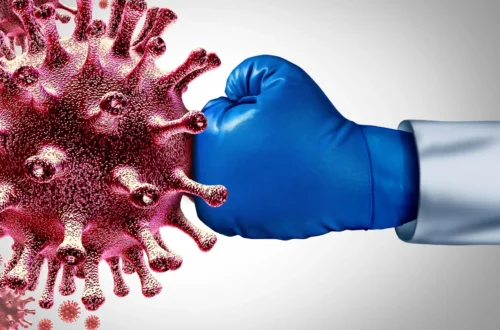
Autism research funded by a new US initiative includes study of environmental exposures during pregnancy.
Credit: Diana Bagnoli/Getty
This week, scientists took a significant step toward unraveling the complex causes of autism. While US President Donald Trump’s statements linking the painkiller acetaminophen to autism grabbed headlines, his White House event also revealed a crucial update: the US National Institutes of Health (NIH) is investing $50 million in a groundbreaking autism-research initiative.
On September 22, Trump and Jayanta Bhattacharya, the director of the NIH, announced that 13 research groups will receive funding through the Autism Data Science Initiative (ADSI). This program aims to investigate how various genetic and environmental factors interplay to contribute to autism. Helen Tager-Flusberg, an autism researcher at Boston University, emphasizes, “This is where the field needs to be going in searching for the complex causes of autism.”
Trump team backs an unproven drug for autism — but does it work?
The funded projects encompass a broad range of studies, from examining environmental exposures during pregnancy to exploring brain cell functionalities. Additionally, funding has been allocated for efforts to replicate research findings to ensure their validity.
While researchers are optimistic about the objectives and rigor of the new studies, some express concerns. ADSI grant recipients have noted a quicker project timeline—expecting results within three years rather than the usual five. Some researchers worry about potential political influences on their findings, especially after Trump’s recent comments about acetaminophen. Jason Stein, a neuroscientist at the University of North Carolina, Chapel Hill, cautioned, “We should wait until the research happens before announcing an answer.”
A spokesperson for the US Department of Health and Human Services (HSS), which oversees the NIH, asserted, “This is not political interference, but rather a bold, science-driven effort to deliver meaningful answers more quickly.”
Quick turnaround
The NIH announced the ADSI in May and asked researchers to submit grant proposals focusing on the causes of autism, its rising prevalence, and potential interventions. Some voiced concerns about the brief one-month application window—much shorter than the usual period—and questioned who was assessing the grants and the criteria being used. There were fears that the initiative might inadvertently funnel resources toward investigating the discredited notion promoted by Trump’s health secretary Robert F. Kennedy Jr., suggesting a link between vaccines and autism. Judith Miller, a psychologist from the Children’s Hospital of Philadelphia, remarked that “some people thought: maybe we should steer clear of this.”
Ultimately, nearly 250 research teams applied, with none receiving funding for projects that specifically focused on autism and vaccines.
Several of the funded initiatives will examine exposomics—the study of environmental factors affecting individuals. Miller is heading a three-year project worth $4.3 million that will combine genomic and exposomic data to identify factors associated with autism. This study will use pre-existing data from over 100,000 children, including around 4,000 diagnosed with autism, along with maternal health records, incorporating details about each participant’s living environment, including air quality and green space access. “We haven’t been able to bring this type of data all together in a clinical population before,” Miller explained.
Replication requirement
In another approach, Stein and his team plan to study autism using brain organoids derived from stem cells of both autistic and non-autistic children. They will expose these tissues to substances linked epidemiologically to autism, like valproic acid, used in epilepsy treatment, and analyze the impacts on gene activity.
Trump links autism and Tylenol: is there any truth to it?
Summary: The NIH has announced a $50 million funding initiative, the Autism Data Science Initiative (ADSI), to explore the complex causes of autism, focusing on both genetic and environmental factors. While researchers are optimistic about the potential of this funding, concerns about political influence and project timelines have been raised. The initiative plans to support rigorous scientific studies, including exploring environmental exposures during pregnancy and brain research using stem cells.







